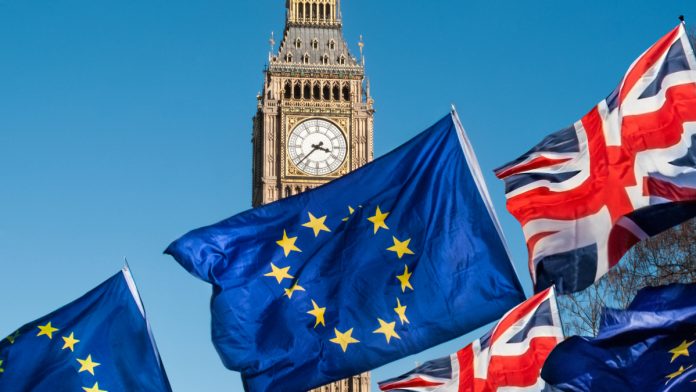Italian political woes combined with German recession fears sent the euro lower versus the pound on Monday. As a result, the pound euro exchange rate recovered after hitting a decade low on Sunday evening. The pair advanced to a high of €1.0813 on Monday. The pound is gaining ground versus the euro in early trade on Tuesday.
| What do these figures mean? |
| When measuring the value of a pair of currencies, one set equals 1 unit and the other shows the current equivalent. As the market moves, the amount will vary from minute to minute. If the euro amount increases in this pairing, it’s positive for the pound.
Or, if you were looking at it the other way around: 1 EUR = 0.87271 GBP In this example, €1 is equivalent to approximately £0.87. This measures the euro’s worth versus the British pound. If the sterling number gets larger, it’s good news for the euro. |
A lack of fresh Brexit news or economic data meant that the pound was able to recover some ground on Monday after dropping sharply towards the end of last week and as the forex markets opened on Sunday evening.
Today investors will glance towards U.K. labour market data for further clues as to the health of the U.K. economy. Analysts are forecasting that the unemployment rate will remain steady at 3.8%. However, the pound could receive a boost from average wage data. Analysts are predicting that wages increased 3.8% in the three months to June. This would be above the 3.6% recorded the previous month, which was the fastest level of growth recorded since 2008. Should the data once again show an impressive level of wage growth the pound could advance.
| How does strong jobs data boost the currency? |
| It works like this, when there is low unemployment and high job creation, the demand for workers increases. As demand for workers goes up, wages for those workers also go up. Which means the workers are now taking home more money to spend on cars, houses or in the shops. As a result, demand for goods and services also increase, pushing the prices of the goods and services higher. That’s also known as inflation. When inflation moves higher, central banks are more likely to raise interest rates, which then pushes the worth of the currency higher. |
The UK labour market could continue to show improvements even as the economy contracted in the second quarter. This is because labour market data is a lagging indicator. Any slowdown could become evident in later data releases.
Whilst data will attract pound investor attention, any Brexit developments will dominate. However, given that Parliament is closed for the summer recess developments have been slow coming through.
Will German Sentiment Deteriorate Further?
The euro was out of favour at the start of the week as Italian political risk picked up. Deputy Prime Minister Matteo Salvini called an election claiming that the relationship between coalition parties was broken beyond repair. Right wing Mr Salvini is ahead in the polls in part thanks to his pledge to cut taxes and immigration. Euro investors are less impressed with any plans to cut Italian taxes whilst the country’s debt pile continues to grow. This could provoke a second European debt crisis.
The other overriding problem for the euro is the health of the German economy. Recent data from Germany has highlighted the struggles in the German manufacturing sector amid escalating US -Sino trade tensions. Whilst German GDP data is due tomorrow, today investors will digest German economic sentiment data. Analysts forecast that confidence in the eurozone’s largest economy will fall once again as recession fears grow.
| Why does poor economic data drag on a country’s currency? |
| Slowing economic indicators point to a slowing economy. Weak economies have weaker currencies because institutions look to reduce investments in countries where growth prospects are low and then transfer money to countries with higher growth prospects. These institutions sell out of their investment and the local currency, thus increasing supply of the currency and pushing down the money’s worth. So, when a country or region has poor economic news, the value of the currency tends to fall. |
This publication is provided for general information purposes only and is not intended to cover every aspect of the topics with which it deals. It is not intended to amount to advice on which you should rely. You must obtain professional or specialist advice before taking, or refraining from, any action on the basis of the content in this publication. The information in this publication does not constitute legal, tax or other professional advice from TransferWise Inc., Currency Live or its affiliates. Prior results do not guarantee a similar outcome. We make no representations, warranties or guarantees, whether express or implied, that the content in the publication is accurate, complete or up to date. Consult our risk warning page for more details.
The content at Currency Live is the sole opinion of the authors and in no way reflects the views of TransferWise Inc.





